George Town, over 500 years, has developed into a melting pot of cultures. From a small village, through the influence of Asia and Europe, it has evolved into a city with a unique multicultural heritage.
The old streets, historical buildings, distinctive architecture and world-famous street arts are heavily influenced by a blend of both eastern and western cultures.
July 7 marks George Town Heritage Day. The day George Town was listed as a UNESCO World Heritage Site lies in the tangible and living cultural heritage.
We have put together 15 historical buildings you should visit in George Town to commemorate George Town Heritage Day.
City Hall
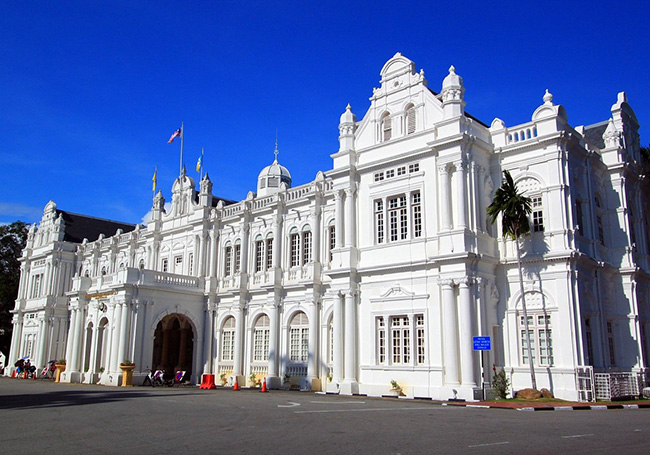
City hall or Town Hall is the oldest municipal building in the vicinity. It was built in 1879 and is considered a category 1 heritage building. The architectural elements such as classical arches, columns, pilasters, quoins, and ornamental elements on roof parapets and balustrades represent its British Palladian architecture style.
Acheen St. Mosque
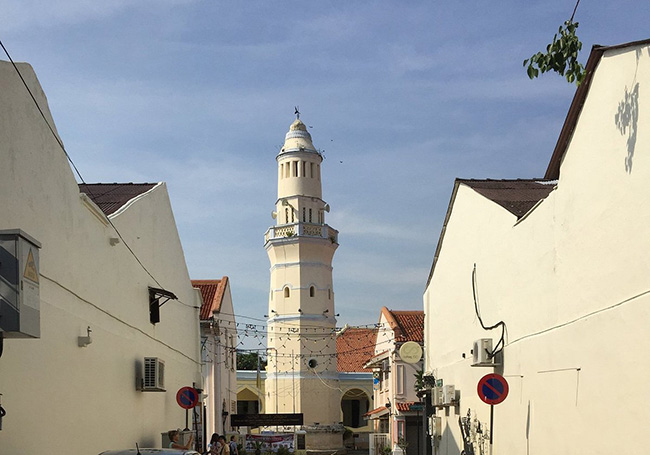
The mosque was built by a wealthy Arab trader who came to Malaysia from Acheh, Sumatra. Acheen mosque, locally known as Masjid Melayu, has an iconic minaret. The mosque stands out because of this unique Egyptian-style minaret, as all other local mosques have Morris-style minarets.
Cheah Kongsi Clan Temple
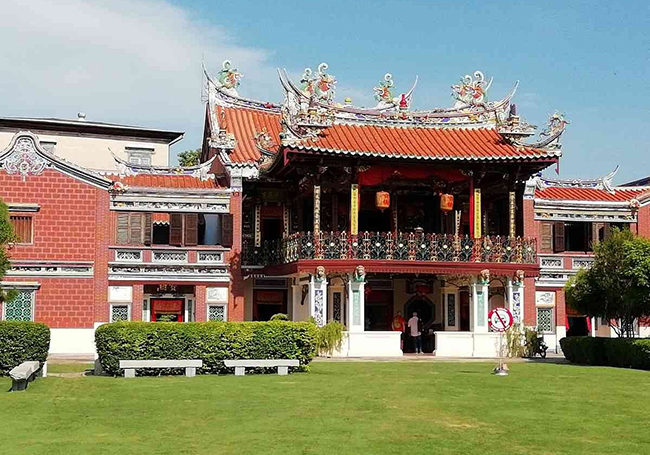
Chean Kongsi is a Chinese temple clan house and a museum. Built-in 1873 by Cheah Yam, an immigrant from South China. It has a combination of European and Chinese Architecture styles. The entrance below the large balcony has an iron railing with intricate detailing supported by white British-style ‘Iron-Lion heads’ on the top. The Chinese and Dutch porcelain & stucco carvings of Dogs and Lions are eclectically placed on the sweeping roof.
Dhammikarama Temple
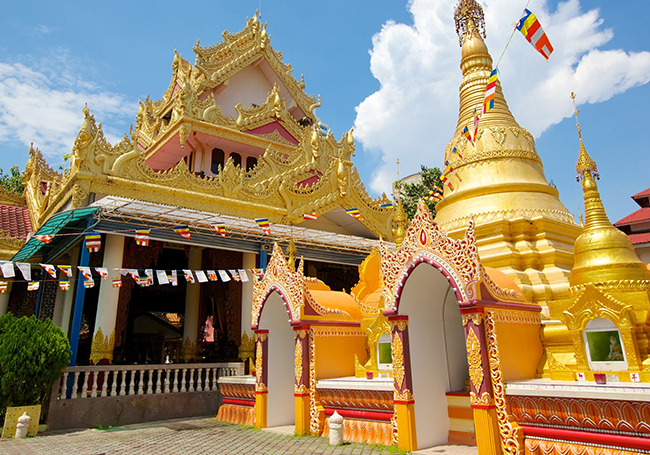
The biggest and oldest Burmese Buddhist temple was built in 1803. It is another example of the cultural diversity of George Town. The central heart of the temple has a shrine and a meditation space with a well-decorated statue of Buddha.
Cheong Fatt Tze Mansion
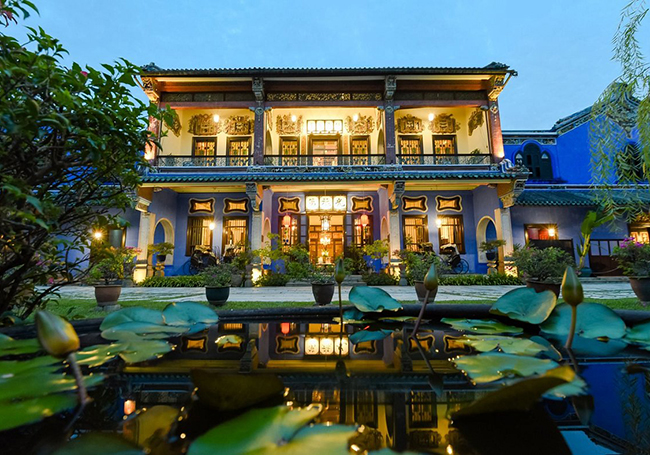
Cheong Fatt Tze Mansion is a boutique hotel built in the traditional Hakka – Teochew style. The mansion was built by a Chinese merchant-trader at the end of the 19th Century. Cheong Fatt Tze explicitly followed the traditional Chinese Courtyard house. Painted in Indigo-blue, the mansion has a blend of Eastern and Western architecture styles.
Mahamariamman Temple/ Little India Street
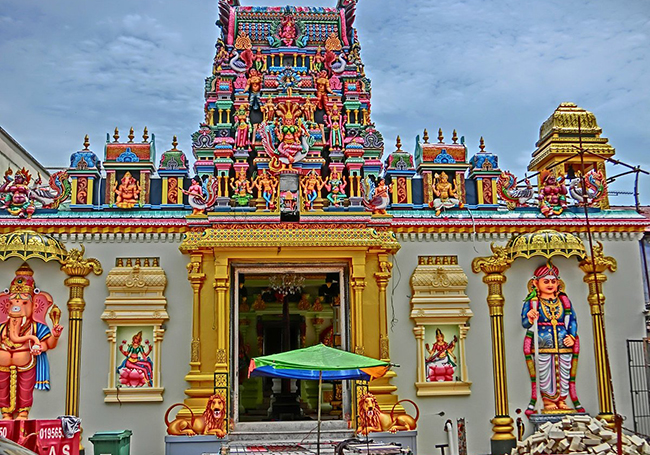
Mahamariamman Temple is a South Indian temple dedicated to the goddess Mariamman. It is located in the Little India district. The Temple structure has well decorated 23ft tall Gopuram with four swans, 38 brightly coloured sculptures of soldiers, Hindu gods and goddesses and floral decorations as usually seen in Dravidian style temple architecture.
Eastern & Oriental Hotel
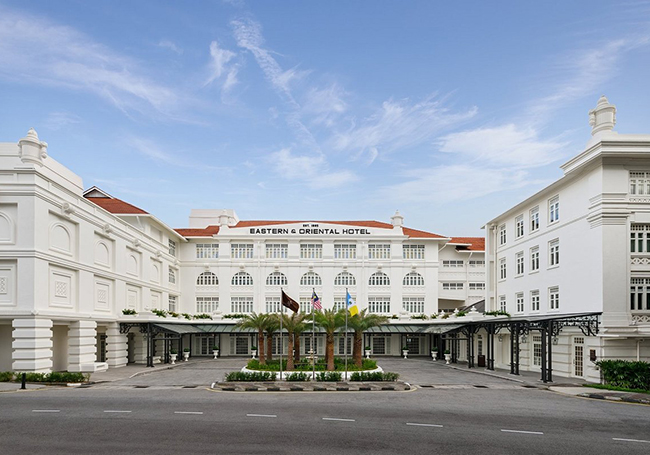
E&O Hotel is a fantastic display of art and architecture with early colonial-era architecture elements. Founded in 1885, the hotel has a feel of British elegance and is an excellent place to stay to understand the impact of European presence in Southeast Asia.
Kapitan Keling Mosque
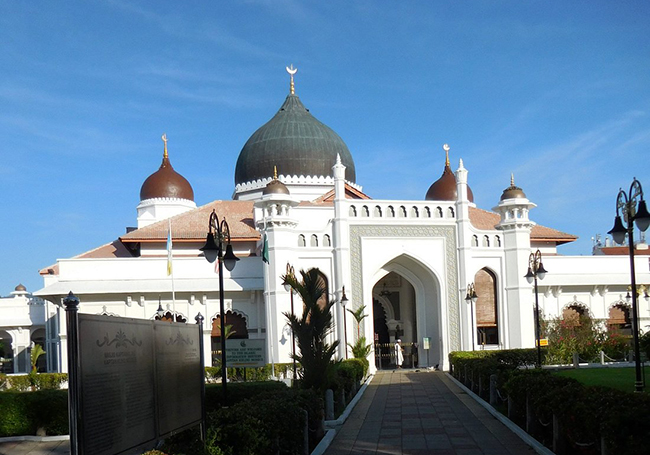
The Indo-Morris structure was built by the first Indian settlers in 1801. The mosque has a typical Indo-Islamic minaret for daily azan. The mosque’s exterior is whitewashed and topped with a golden Mughal-style dome. Walls have calligraphy panels and stained glass window features with arabesques of geometrical design and floral motifs.
Central Fire Station (built 1909)
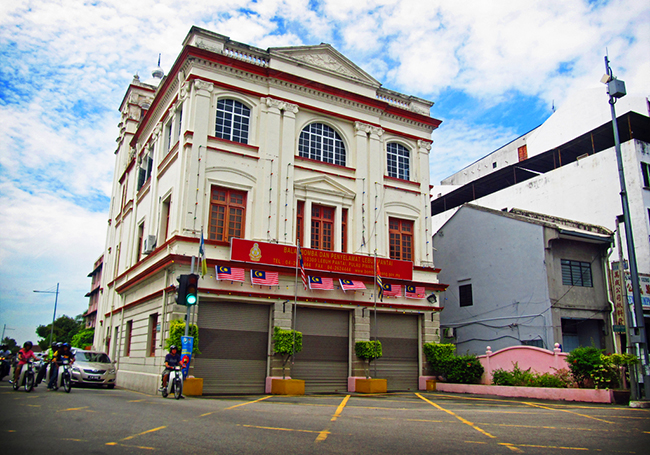
The Central Fire Station on Chulia Street is a splendid example of early 20th Century civic architecture. When this firehouse opened in 1909, it was only one of two in the city dedicated to firefighting. Before that date, policemen were the only paid force on call to put out fires.
Currently, this station is known as the Beach Street Fire Station.
Cathedral of the Assumption (built 19th Century onward)
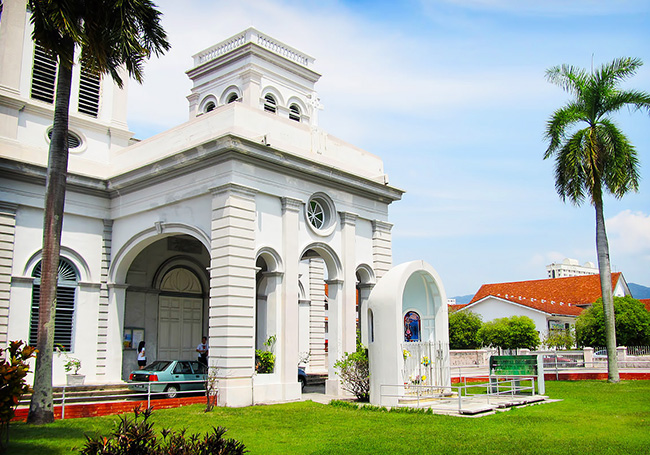
The Cathedral of the Assumption, on Farquhar Street, was built in 1860 and renovated in 1928. Its name derives from the Feast of the Assumption—the day in 1786 Portuguese Eurasians from Kedah reached Penang. The building had been a church until 1955, when the Vatican decreed it become a cathedral.
Nagore Shrine (built early 19th Century onward)
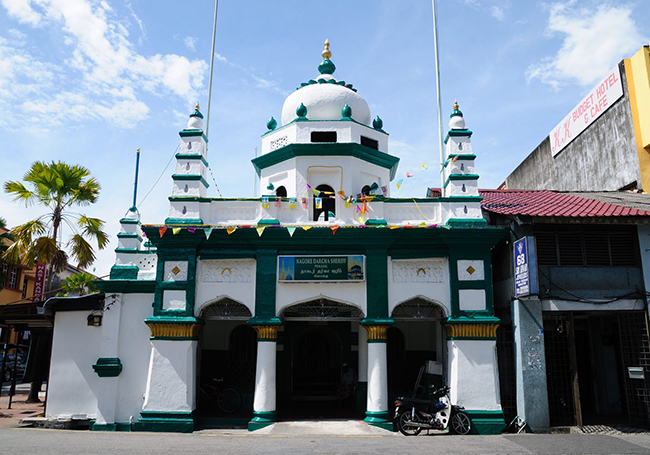
The Nagore shrine stands at the northeast corner of Chulia and King Streets. It was constructed in the early 1800s by South Indian emigrants in honour of Syed Shahul Hamid, a Muslim saint who lived in Nagore in the 13th Century. The shrine is still the centre of religious observances, feast days, and events by Tamil Muslims whose ancestors hailed from Tanjore, India. Interestingly, the west side of the shrine contains two built-in shops, one guidebook says are occupied by songkok (Muslim headwear) makers. However, it appears that jewellers now currently occupy these shops.
St. George’s Church (built from 1818 onward)
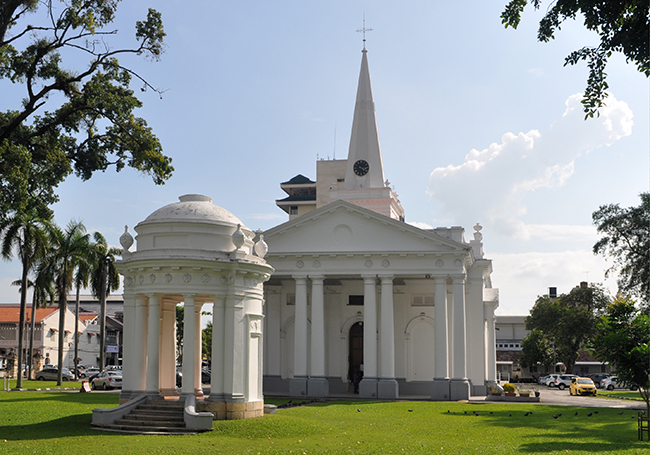
St. George’s Church is the oldest Anglican church in Southeast Asia. Planning for the church began in 1817 and was completed the following year using convict labour during Bannerman’s term as British Governor of Penang. The church’s first marriage occurred in 1818 when W. E. Phillips married Janet Bannerman, the daughter of Colonel J. A. Bannerman. The church roof was initially flat but was changed to a pitched roof in 1864.
Sun Yat-sen’s Penang Base (built late 19th Century onward)
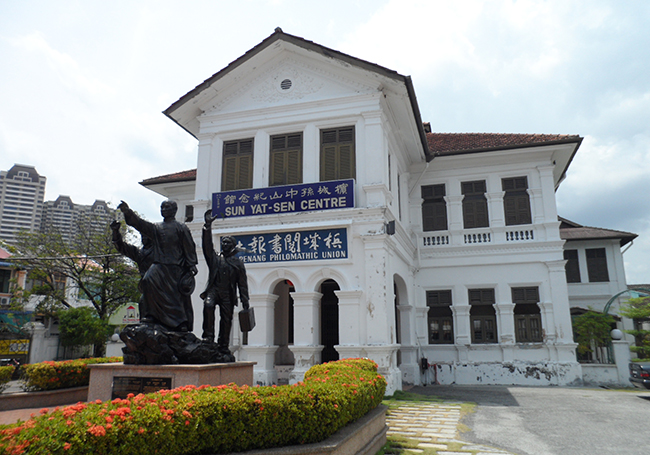
This traditional Straits Chinese shophouse served as the base of Dr Sun Yat Sen’s revolutionary party, the Tung Meng Hooi, from 1909-1911. It was here that Dr Sun and his overseas Chinese supporters met in 1910 to plan the Canton uprising in the spring of 1911. This famous meeting went down in the history of China as the ‘Penang Conference’. The country’s oldest Chinese language paper, the Kwong Wah Jit Poh, was founded in this house by Dr Sun’s Penang supporters.
Syed Alatas Mansion (built mid-19th Century, recently restored)
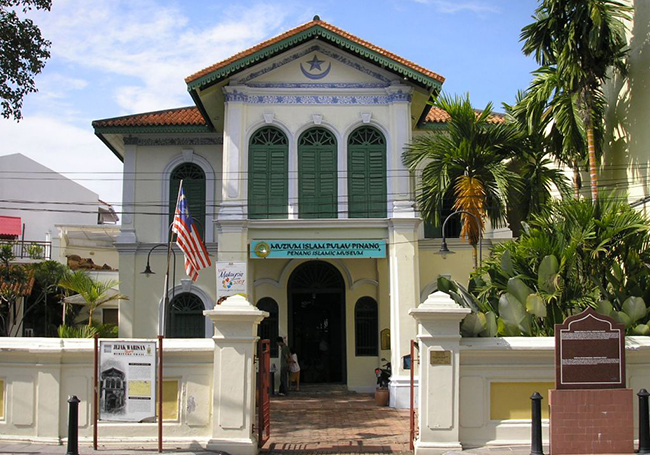
This mansion, located on Armenian Street, was the home of Syed Mohamed Alatas, a prominent Muslim citizen of Penang. During the late 19th Century, Syed Alatas led the Red Flag secret society, which engaged in acts of resistance against Dutch hegemony in the East Indies.
For more information on more historical buidings in George Town, please visit Asian Historical Architecture.










